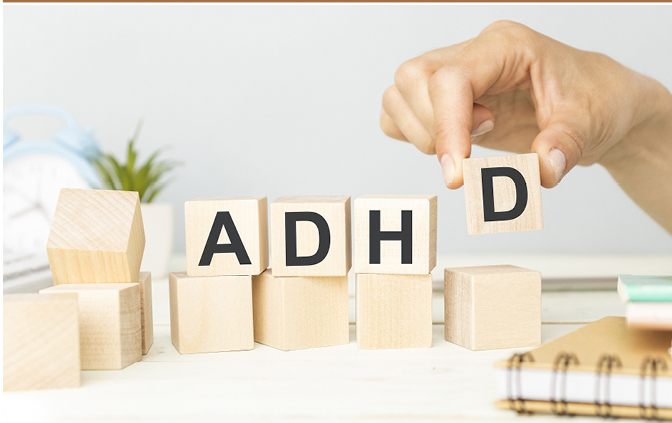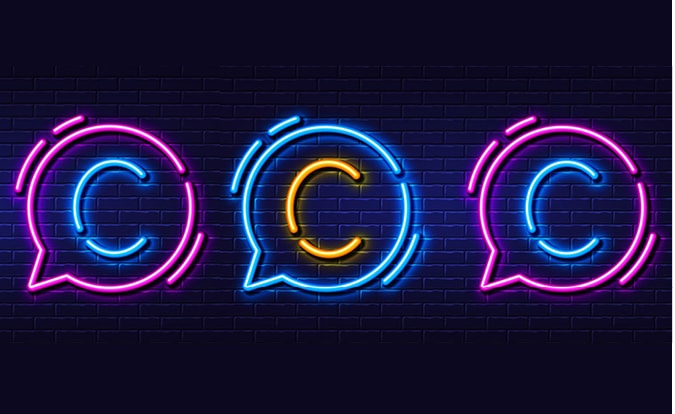
Attention Challenges and Jewish Education
July 18, 2022
ADHD Students and Their Teachers – Who Needs the Help?
July 18, 2022by Rabbi Gary Menchel and Karyn Feinberg, Psy. D
“I cry at night because my teachers tell me you could do better. It should be illegal to say that.”
“I feel lost, helpless and uncertain at times.”
“I don’t want to ask for help because I am ashamed and embarrassed.”
“I am always letting my teachers and parents down.”
“If only my teachers understood how hard it is for me.”
“Sometimes I feel so angry.”
“The other students think I am dumb. I must be the dumbest kid in the class.”
“I make believe that I am listening when I am really totally lost.”
These powerful quotes that children with ADHD have shared give a painful glimpse into the realities that they deal with on a constant basis. We would all benefit from a deeper understanding of students with ADHD; that they may feel vulnerable, lost, insecure, uncertain, anxious and resistant to asking for assistance. Many struggle with their peer relationships and may consistently find themselves in the center of social tensions or altercations, or spending their recess time walking around the perimeter of the yard, alone and lonely. These feelings are compounded for yeshiva day school students who feel burdened by their long school day followed by homework, their desire to please rebbeim, morot, teachers and parents, and the high expectations we frequently place upon them. Wouldn’t having a more comprehensive insight into these children’s school experience motivate us to search for strategies which would help address their needs?
In order to give children with ADHD a legitimate chance to achieve and thrive, we have to genuinely believe in their capacity to be successful, as we commit ourselves to do whatever is necessary to support them in a mainstream yeshiva day school. We must recognize that these struggles are not their fault, and they often have limited control over them. When students feel misunderstood and helpless, they often develop a damaged self-concept, act out or shut down. In fact, we have seen that many students with ADHD have strengths and talents that, while not readily apparent in our school system, need to be tapped into. In addition, given the condensed nature of the mainstream yeshiva day school educational program, it is particularly challenging for students with ADHD, who typically struggle with working memory and initiating and sustaining attention, to learn complex subject matter such as mathematics and Gemara.
Our Commitment
So where do we go from here? Success is likely not going to be achieved on its own. We must acknowledge that students with ADHD are at serious risk if we are not prepared to invest our time, energy and resources into this ubiquitous challenge. We have therefore developed a multifaceted approach that involves educating and collaborating with parents, teachers and students, while incorporating the guidance of mental health professionals, both within and outside of the school. Our school’s leadership team shares the unwavering commitment to helping children with ADHD (and all students) experience joyful and engaging learning and inspired religious growth through their yeshiva day school experience.
Parents
It is important to help parents understand that ADHD is a complex neurodevelopmental disorder which often impacts a child’s learning and behavior. Developing a collaborative and trusting relationship with open lines of communication between parents and school is critical. Since the same behavior may be due to disparate etiologies, it is essential to have an accurate differential diagnosis so that the intervention plan developed, and the strategies implemented, are targeted and effective. Depending on the profile of the child, this may include a neuropsychological evaluation and/or an evaluation by a pediatric psychiatrist, pediatric neurologist or a developmental pediatrician. Parents need to be kept apprised of the strategies that are being implemented by the school and support them through reinforcement and practice at home.
When necessary, a medication consultation should be recommended and sensitively encouraged. Many parents’ first response may be: “I have no intention of putting my child on medication,” however, with compassionate education and open communication, we have found that many will eventually be open to exploring it. In our experience, the correct medication can make a huge difference in the success of the strategies implemented, in the student’s availability to learn and the student’s view of him/herself as a capable learner.
Parents have shared that, while some children are able to contain and mask some of their feelings and behaviors in school, they release them at home. This is difficult for parents to see and to manage. Therefore, behavior management training, counseling, PCIT (parent child interaction therapy), social skills groups, and parent support groups may be some of the avenues to pursue.
Teachers
We have found that teachers need to be properly educated and trained in order to understand students with ADHD. It is critical that they be made aware that there are three distinct categories of ADHD: hyperactive/impulsive, inattentive and combined type. The broad characterization of students as having ADHD, without understanding the typology and nuances, is not only a disservice to the student but can be harmful and detrimental to their emotional and academic wellbeing. It may also impede the teacher’s ability to provide meaningful and effective support to these students as well as run a successful classroom. We do recognize that teaching children with ADHD can be exceedingly draining on teachers and requires patience, dedication, creativity, and ingenuity. The school administration has the responsibility to provide the tools, education and support to set teachers up for success.
Some students with ADHD, inattentive type, may be labeled as unmotivated, uncaring, lazy or learning challenged while, in fact, they do care a great deal, may be quite capable and may even be extremely bright. Students who struggle with impulsivity and hyperactivity may be seen as behavior problems who need to be disciplined or removed from the class, rather than possibly benefitting from a behavioral intervention plan with associated rewards and consequences. We have found that teachers will approach a child with a different lens, and will have greater compassion and patience, when they realize that the behaviors are not totally within the student’s control but rather are a part of the child’s physiological makeup.
There are many effective strategies that are recommended for a teacher to implement to support the child with ADHD. At the risk of stating the obvious, we will share a sampling of those that are used by our teachers and have been found to be effective, as reported by them in a recent survey.
- Metacognitive awareness to help students understand how their minds work
- A quiet and visually uncluttered environment/Use of headphones to eliminate background noise
- Social skills groups
- Sensory stimulation
- Give reasonable and defined choices
- Chunk and simplify tasks
- Be in close proximity to the child when giving directions
- Hands on learning
- Positive reinforcement
- Support with organizational skills/executive functioning/time and material management
- Test modifications
- Empathy/Flexibility
- Incorporate student’s areas of interest, passion and skill (music, art) in the lesson
- Use of a timer and highlighting
- Set increasingly more difficult, but attainable, goals
- Movement breaks during learning (assign classroom job), movement cards, exercise, dance
- Differentiated/small group instruction and assessment
- Check-ins with student to see what he/she needs
- Use of non-verbal/visual cues, refocusing prompts and reminders
- Prepare the student for transitions and changes in routine
Our teachers were especially excited to share scenarios in which they saw their strategies make a real difference in the lives of their students. One rebbi asked an artistic student who struggled with attention to draw a cartoon depicting each step of the Gemara. The student shared that he enjoyed the work and was thrilled that he now understood the Gemara. A Middle School General Studies teacher uses a specific document tailored to the exact skills targeted in a particular assignment. He then breaks down the writing into smaller achievable tasks that can be completed in a shorter time frame, while being scaffolded and supported. Another elementary Jewish Studies teacher, realizing that a student “could not sit for even a minute”, found that teaching new Hebrew vocabulary through song was effective and fun. A different faculty member designs leadership positions for the student with ADHD, making him/her the teacher’s assistant, line leader, chazan or runner. In another instance, in order to engage a pre-Bar Mitzvah student during Tefillah, in spite of his short attention span, we made an agreement that he daven specific tefillot, and, when they are completed, he is given the opportunity to read a book (which he loves doing). This prevents davening from becoming a battleground which can negatively impact a student’s love for Judaism. As the student’s attention span increases, more tefillot will gradually be added to his daily routine. We anticipate that, as he becomes a Bar Mitzvah, he will have positive feelings toward davening and his relationship to Hashem.
Students
Given the powerful and painful feelings students with ADHD have, as reflected in the quotes above, it is imperative to engage students directly in compassionate and meaningful conversation about ADHD. This will hopefully help to demystify what they are experiencing. Since ADHD may impact them throughout their lives, it is important to provide the tools to empower them to navigate both school and life. They will be most successful if they learn to advocate for themselves and find solutions to their challenges. It is validating for these students to understand that every child has a unique makeup and learning style. They should be taught that a diagnosis of ADHD does not define who they are, rather, just as their peers may have challenges in reading, writing or vision, ADHD is their challenge, and we need to help them learn to manage it. Being honest and transparent in highlighting their positive qualities and capabilities, as well as discussing those areas in which they struggle and need support is essential. Through this metacognitive approach, students will gain a better awareness and insight into how they best learn and process information. Of course, having ADHD should never be used as an excuse for inappropriate behavior. We have the capacity to help a child who has ADHD maintain a positive self-concept by conveying that he/she is a regular child, but having ADHD makes it a little harder for them in certain areas. They should feel assured that they are not alone, but that all the adults around them, their parents, teachers, and professionals, as a team, are here to help them thrive.
Conclusion
Many theories abound as to why we are seeing more children with ADHD than ever before. Regardless of the reasons, the reality is that we all have students with ADHD in our schools. It is incumbent upon us to better understand students with ADHD, to commit the resources and time to educate our staff and parents, and to create an environment in which all students can thrive. The stakes are very high. We are not “simply” talking about the risks to the educational experience of these students, but to their very identity as Jews and their participation as valued members of our community. A child who has low self-esteem and has had a negative yeshiva day school experience is at serious risk of leaving the fold. If we are able to collaborate with parents and teachers before a child begins to see him/herself in a negative light, and genuinely convey the value and potential that each child has, we may be saving a Jewish soul.
Rabbi Gary Menchel has been Head of School/Rosh HaYeshiva of Yeshiva Har Torah for the past five years, after serving as Principal for 22 years. Rabbi Menchel did his undergraduate work in Psychology at Yeshiva University, received his Masters Degree in Education and his Professional Certification in School Psychology from Brooklyn College, and Semicha from the Rabbi Isaac Elchanan Theological Seminary (RIETS) of Yeshiva University, from Rabbi Yosef Dov Soloveitchik, ZT”L. Rabbi Menchel has since completed several institutes through the Harvard Principal’s Center and has participated in numerous professional development initiatives. He has served as a Mentor to aspiring Yeshiva principals through ELAI (Educational Leadership Advancement Initiative) of the Lookstein Center at Bar Ilan University and as President of the Principals’ Council of the Department of Yeshivot and Day Schools of the Jewish Educational Project (formerly BJE). [email protected]
Dr. Karyn Feinberg has been Director of Psychology Services at Yeshiva Har Torah for the past 7 years, after serving as School Psychologist for the previous 26 years. She oversees a team of psychologists and has supervised many interns in the fields of psychology, social work and mental health counseling. Dr. Feinberg received her Psy.D from Ferkauf Graduate School of Psychology, after receiving her Master’s in Education and School Psychology Certification at City College of New York. She has co-authored articles on Mental Health within the Jewish community and presented to professional and lay audiences. A founding board member of NEFESH: The International Network of Orthodox Mental Health Professionals, Dr. Feinberg currently serves on its Executive Committee. [email protected]

